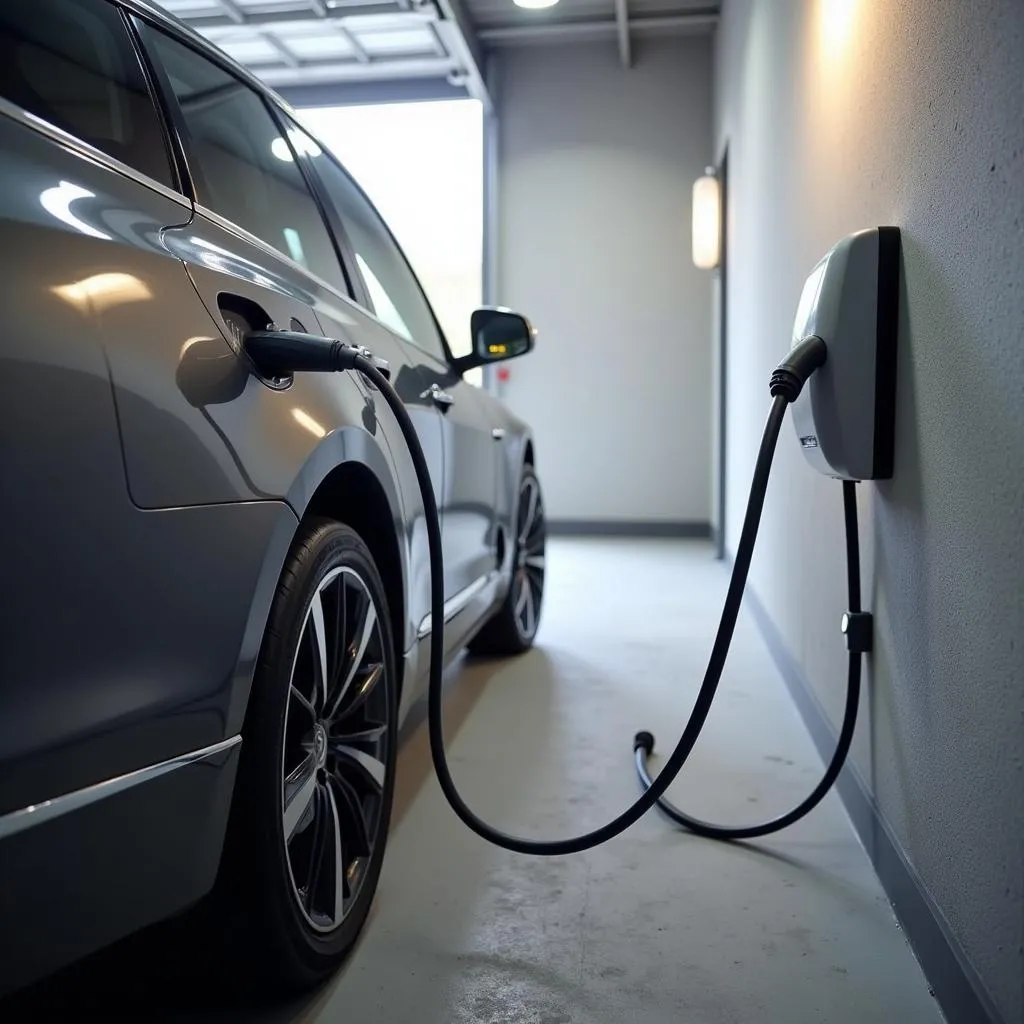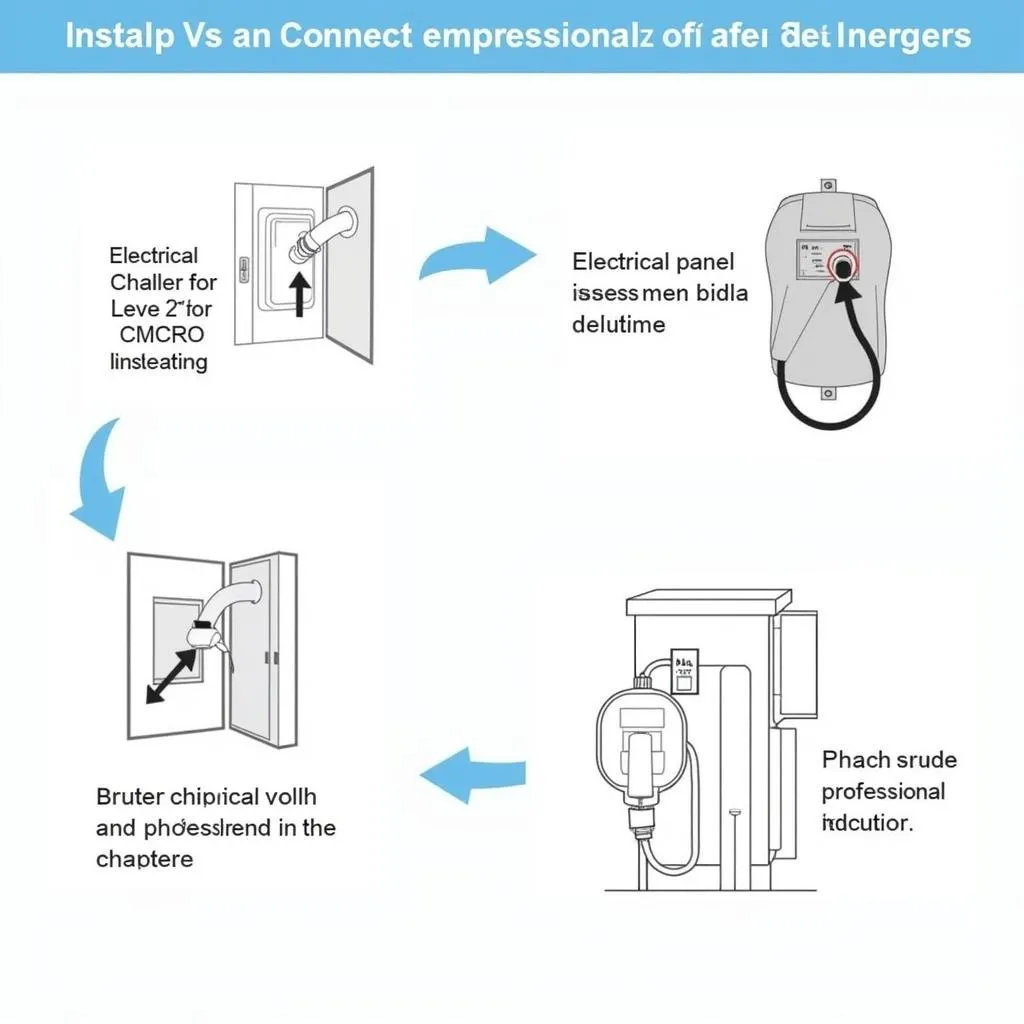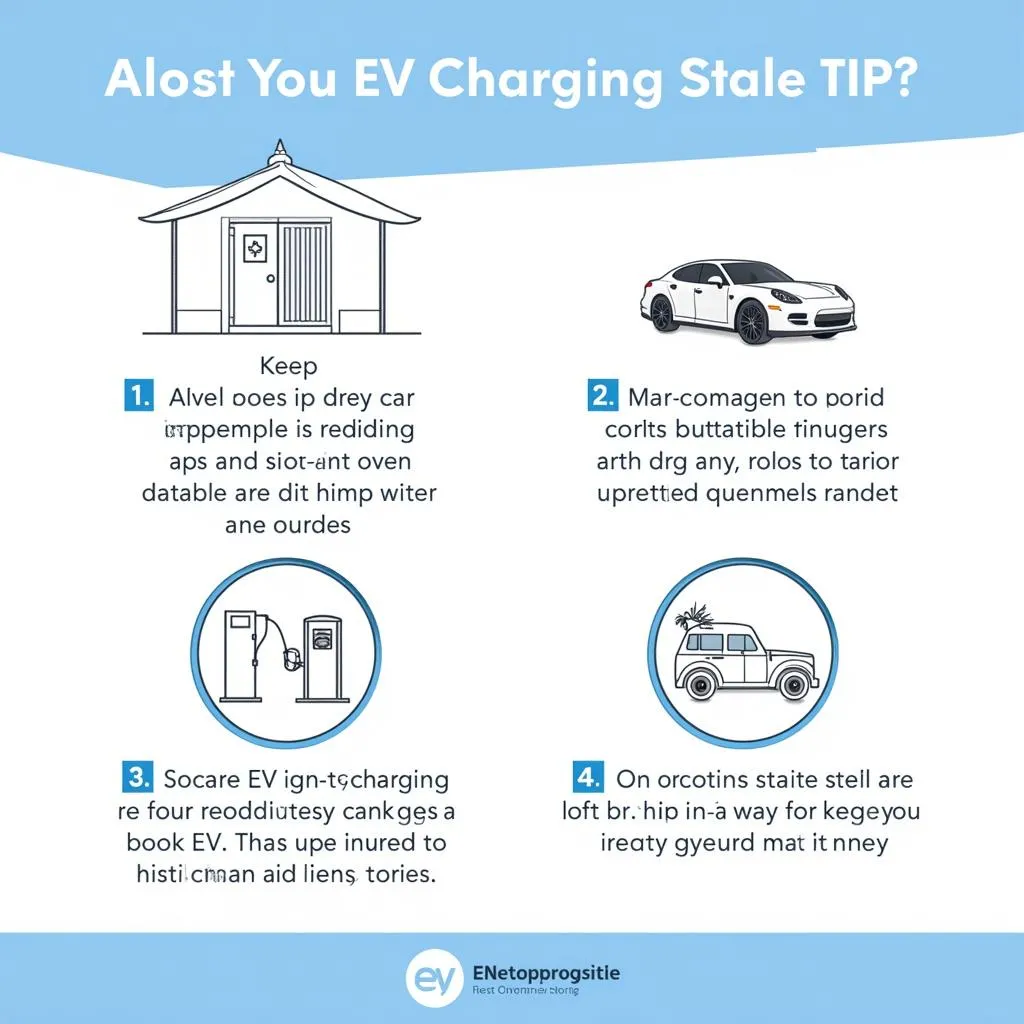Thinking about making the switch to an electric car? You’re not alone. As the world embraces sustainable solutions, electric vehicles (EVs) are gaining immense popularity. But one question many potential EV owners have is, “What’s the deal with charging at home?” Well, wonder no more! This comprehensive guide dives deep into everything you need to know about electric car charging at home.
 Home EV Charging Setup
Home EV Charging Setup
Understanding Your Electric Car Charging Needs
Before jumping into the specifics, it’s crucial to understand your individual charging requirements. This largely depends on your driving habits and the range of your electric car.
- Daily Driving Distance: Do you primarily use your car for short commutes or frequent long trips? Knowing your average daily mileage helps determine the charging frequency and the type of charger you need.
- EV Battery Capacity: EVs come with varying battery capacities, directly impacting their range. A higher capacity translates to a longer range, potentially reducing the frequency of charging.
Types of Home EV Chargers
Not all chargers are created equal. Here’s a breakdown of the most common types of home EV chargers:
Level 1 Chargers
- The Basics: These chargers use a standard 120-volt household outlet, the kind you use for your everyday appliances.
- Charging Speed: Level 1 chargers offer the slowest charging speed, typically adding 2-5 miles of range per hour.
- Ideal For: Occasional drivers or those with plug-in hybrid vehicles (PHEVs) with smaller battery packs.
Level 2 Chargers
- The Basics: These chargers require a dedicated 240-volt circuit, similar to the one powering your dryer or oven.
- Charging Speed: Level 2 chargers provide significantly faster charging speeds than Level 1 chargers, adding 10-60 miles of range per hour.
- Ideal For: Most EV owners, especially those with longer commutes or larger battery EVs.
 Level 2 EV Charger Installation
Level 2 EV Charger Installation
Choosing the Right EV Charger for Your Needs
Choosing the correct EV charger depends on several factors:
- Your EV’s Onboard Charger: Your EV comes equipped with an onboard charger that dictates the maximum charging rate it can accept. Ensure your chosen charger aligns with your vehicle’s capabilities.
- Home Electrical System: Level 2 chargers necessitate a dedicated 240-volt circuit, which may require an upgrade to your electrical panel.
- Budget: Level 1 chargers are generally more affordable upfront, while Level 2 chargers offer long-term savings due to faster charging times.
Installation and Safety Considerations
While plugging a Level 1 charger into a standard outlet is straightforward, installing a Level 2 charger requires professional expertise.
- Professional Electrician: Hiring a licensed electrician ensures the charger is installed safely and adheres to all building codes.
- Dedicated Circuit: A dedicated circuit for your Level 2 charger prevents overloading your home’s electrical system.
- Safety Features: Look for chargers with built-in safety features like ground fault protection and overcurrent protection.
 EV Charging Safety Tips
EV Charging Safety Tips
Benefits of Charging Your Electric Car at Home
Charging at home offers a plethora of benefits:
- Convenience: Imagine waking up to a fully charged car every morning, ready to hit the road.
- Cost Savings: Charging at home is often cheaper than using public charging stations, especially if you take advantage of off-peak electricity rates.
- Control: You have complete control over your charging schedule and can choose when and how much to charge.
Conclusion
Switching to an electric car and embracing home charging is a significant step towards a greener future. By understanding your charging needs, choosing the right charger, and prioritizing safety, you can enjoy a seamless and cost-effective EV ownership experience. Remember, with the right knowledge and preparation, charging your electric car at home is convenient, affordable, and empowering.
FAQs about Electric Car Charging at Home
1. Can I charge my electric car in the rain?
Yes, most modern electric cars and charging connectors are designed to withstand rain and wet conditions. However, it’s always best to consult your car’s manual and exercise caution.
2. How long does it take to charge an electric car at home?
Charging times vary depending on the type of charger and your car’s battery capacity. It can range from a few hours with a Level 2 charger to overnight charging with a Level 1 charger.
3. Are there any government incentives for installing home EV chargers?
Yes, many governments offer tax credits, rebates, or other incentives to encourage the adoption of electric vehicles and home charging. Be sure to research local and national incentives available in your area.
4. Do I need a special permit to install an EV charger at my home?
Permit requirements vary depending on your location and local building codes. It’s best to check with your local municipality or homeowners’ association.
5. What is smart charging, and how does it work?
Smart charging utilizes software and connectivity features to optimize your charging schedule. It can automatically charge your car during off-peak hours when electricity rates are lower, saving you money on your energy bill.
6. Can I use an extension cord to charge my electric car?
Using extension cords for EV charging is highly discouraged and can be dangerous. Extension cords are not designed to handle the high electrical load required for EV charging and can overheat, posing a fire hazard.
7. How often do I need to replace my EV charger?
EV chargers are generally durable and long-lasting. With proper maintenance and care, they can last for several years. However, if you experience any issues with your charger, it’s crucial to consult a qualified electrician for inspection and repair.
For those seeking more information on EV charging equipment and compatible vehicles, check out our informative articles on ev car charger and tesla 2014 car. Our website provides valuable resources to help you make informed decisions about electric car charging at home.
Still have questions or need personalized guidance on finding the perfect EV charging solution for your needs? Don’t hesitate to reach out! Our team of experts at DiagXcar is here to help. Contact us via WhatsApp: +1(641)206-8880, Email: [email protected], or visit our workshop at 276 Reock St, City of Orange, NJ 07050, United States. We offer 24/7 customer support to assist you every step of the way.


